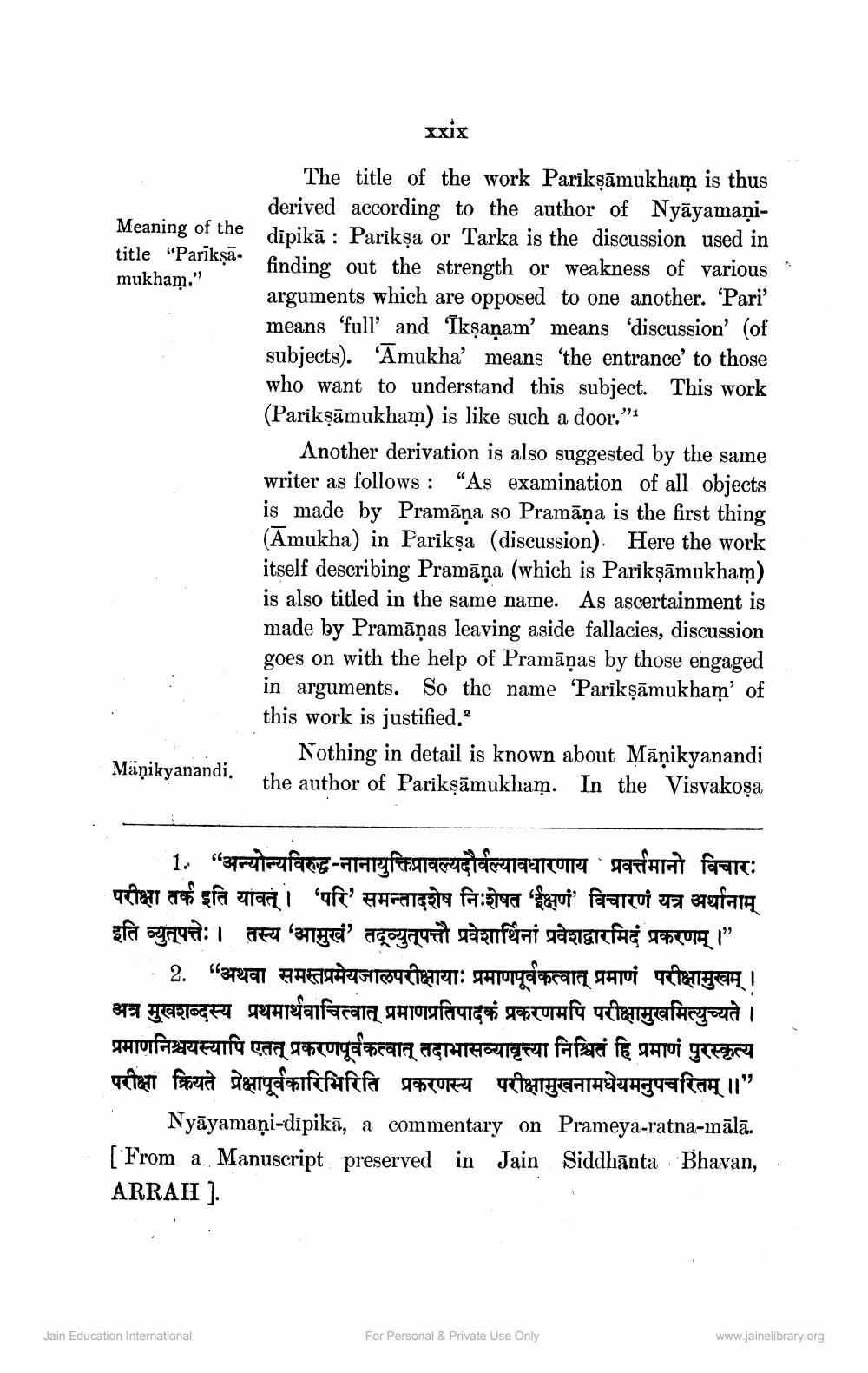________________
xxix The title of the work Parikṣāmukham is thus
derived according to the author of NyāyamaņiMeaning of the dipikā : Pariksa or Tarka is the discussion used in title "Parīksā.
finding out the strength or weakness of various mukham."
arguments which are opposed to one another. 'Pari'
means full' and 'Tksanam' means discussion' (of subjects). 'Amukha' means 'the entrance' to those who want to understand this subject. This work (Parikşāmukham) is like such a door.”:
Another derivation is also suggested by the same writer as follows : “As examination of all objects is made by Pramāņa so Pramāṇa is the first thing (Amukha) in Fariksa (discussion). Here the work itself describing Pramāņa (which is Parikṣāmukham) is also titled in the same name. As ascertainment is made by Pramāṇas leaving aside fallacies, discussion goes on with the help of Pramāṇas by those engaged in arguments. So the name 'Pariksamukham' of this work is justified.”
Nothing in detail is known about Māņikyanandi Māņikyanandi, the
ndi. the author of Pariksāmukham. In the Visvakosa
1. "अन्योन्यविरुद्ध-नानायुक्तिप्रावल्यदौर्बल्यावधारणाय प्रवर्त्तमानो विचारः परीक्षा तर्क इति यावत् । 'परि' समन्तादशेष निःशेषत 'ईक्षणं' विचारणं यत्र अर्थानाम् इति व्युत्पत्तेः। तस्य 'आमुखं' तव्युत्पत्तौ प्रवेशार्थिनां प्रवेशद्वारमिदं प्रकरणम् ।"
2. "अथवा समस्तप्रमेयजालपरीक्षायाः प्रमाणपूर्वकत्वात् प्रमाणं परीक्षामुखम् । अत्र मुखशब्दस्य प्रथमार्थवाचित्वात् प्रमाणप्रतिपादकं प्रकरणमपि परीक्षामुखमित्युच्यते । प्रमाणनिश्चयस्यापि एतत् प्रकरणपूर्वकत्वात् तदाभासव्यावृत्त्या निश्चितं हि प्रमाणं पुरस्कृत्य परीक्षा क्रियते प्रेक्षापूर्वकारिभिरिति प्रकरणस्य परीक्षामुखनामधेयमनुपचरितम् ॥"
Nyāyamaņi-dipikā, a commentary on Prameya-ratna-mālā. [ From a Manuscript preserved in Jain Siddhanta Bhavan, ARRAH ].
Jain Education International
For Personal & Private Use Only
www.jainelibrary.org




